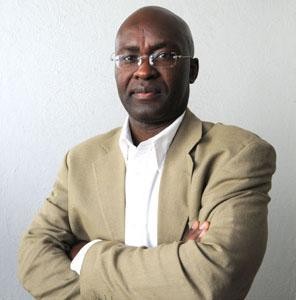Taiye Selasi ~ Don’t Ask Where I’m From, Ask Where I’m A Local
When someone asks you where you’re from … do you sometimes not know how to answer? Writer Taiye Selasi speaks on behalf of “multi-local” people, who feel at home in the town where they grew up, the city they live now and maybe another place or two. “How can I come from a country?” she asks. “How can a human being come from a concept?”
About Taiye Selasi:
A writer and photographer of Nigerian and Ghanaian descent, born in London and raised in Boston, now living in Rome and Berlin, who has studied Latin and music, Taiye Selasi is herself a study in the modern meaning of identity. In 2005 she published the much-discussed (and controversial) essay “Bye-Bye, Babar (Or: What Is an Afropolitan?),” offering an alternative vision of African identity for a transnational generation. Prompted by writer Toni Morrison, the following year she published the short story “The Sex Lives of African Girls” in the literary magazine Granta.
Her first novel Ghana Must Go, published in 2013, is a tale of family drama and reconciliation, following six characters and spanning generations, continents, genders and classes.
Open Culture ~ Free Philosophy eBooks
 The page features a growing list of Free Philosophy eBooks, presenting essential works by Aristotle, Hegel, Kant, Nietzsche, Wittgenstein and many other philosophers. You can generally read these texts on your Kindle, iPad & iPhone, or web browser. For those interested in philosophy, you won’t want to miss our collection of Free Online Philosophy Courses.
The page features a growing list of Free Philosophy eBooks, presenting essential works by Aristotle, Hegel, Kant, Nietzsche, Wittgenstein and many other philosophers. You can generally read these texts on your Kindle, iPad & iPhone, or web browser. For those interested in philosophy, you won’t want to miss our collection of Free Online Philosophy Courses.
Enjoy: http://www.openculture.com/free-philosophy-ebooks
Achille Mbembe ~ On The State Of South African Political Life
In these times of urgency, when weak and lazy minds would like us to oppose “thought” to “direct action”; and when, precisely because of this propensity for “thoughtless action”, everything is framed in the nihilistic terms of power for the sake of power – in such times what follows might mistakenly be construed as contemptuous.
And yet, as new struggles unfold, hard questions have to be asked. They have to be asked if, in an infernal cycle of repetition but no difference, one form of damaged life is not simply to be replaced by another.
The force of affect
Indeed the ground is fast shifting and a huge storm seems to be building up on the horizon. May 68? Soweto 76? Or something entirely different?
The winds blowing from our campuses can be felt afar, in a different idiom, in those territories of abandonment where the violence of poverty and demoralization having become the norm, many have nothing to lose and are now more than ever willing to risk a fight. They simply can no longer wait, having waited for too long now.
Out there, from almost every corner of this vast land seems to stretch a chain of young men and women rigid with tension.
As tension slowly swells up, it becomes ever more important to hold on to the things that truly matter.
A new cultural temperament is gradually engulfing post-apartheid urban South Africa. For the time being, it goes by the name “decolonization” – in truth a psychic state more than a political project in the strict sense of the term.
Whatever the case, everything seems to indicate that ours is a crucial moment in the redefinition of what counts as “social protagonism” in this country. Mobilizations over crucial matters such as access to health care, sanitation, housing, clean water or electricity might still be conducted in the name of the implicit promise inherent to the struggle years – that life after freedom will be “better” for all.
But fewer and fewer actually believe it. And as the belief in that promise fast recedes, raw affect, raw emotions and raw feelings are harnessed and recycled back into the political itself. In the process, new voices increasingly render old ones inaudible, while anger, rage and eventually muted grief seem to be the new markers of identity and agency.
Psychic bonds – in particular bonds of pain and bonds of suffering – more than lived material contradictions are becoming the real stuff of political inter-subjectivity. “I am my pain” – how many times have I heard this statement in the months since #RhodesMustFall emerged? “I am my suffering” and this subjective experience is so incommensurable that “unless you have gone through the same trial, you will never understand my condition” – the fusion of self and suffering in this astonishing age of solipsism and narcissism.
So it is that the relative cultural hegemony the African National Congress (ANC) exercised on black South African imagination during the years of the struggle is fast waning. In the bloody miasma of the Zuma years, these years of stagnation, rent-seeking and mediocrity parading as leadership, there is hardly any center left standing as institutions after institutions crumble under the weight of corruption, a predatory new black élite and the cynicism of former oppressors.
In the bloody miasma of the Zuma years, the discourse of black power, self-affirmation and worldliness of the early 1990s is in danger of being replaced by the discourse of fracture, injury and victimization – identity politics and the resentment that always is its corollary.
Rainbowism and its most important articles of faith – truth, reconciliation and forgiveness – is fading. Reduced to a totemic commodity figure mostly destined to assuage whites’ fears, Nelson Mandela himself is on trial. Some of the key pillars of the 1994 dispensation – a constitutional democracy, a market society, non-racialism – are also under scrutiny. They are now perceived as disabling devices with no animating potency, at least in the eyes of those who are determined to no longer wait. We are past the time of promises. Now is the time to settle accounts.
But how do we make sure that one noise machine is not simply replacing another? Read more
André Fernandes ~ Renewable Energy In Slums
Renewable energy is a great opportunity to decrease costs, amplify the access to electricity in underserved areas and generate jobs/income opportunities in the communities.
In Brazil, it’s common to see in many slums illegal access to electricity, as people say “gato”. In addition to be illegal, the lack of a proper installation let the whole slum vulnerable to accidents, like a fire.
And in addition to the solar energy, what other sources of energy can we imagine for slums?
From the feedback given by Laurent – see on the comments – this idea also connects directly to sanitation management, that’s another huge challenge to face in slums. And IDEO has already worked on a business model for sanitation management in Ghana. Check here: http://fr.slideshare.net/jocelynwyatt/ghana-sanitation-opportunities
Considering this IDEO business model on sanitation management, what else could we consider?
Read more: https://challenges.openideo.com/renewable-energy-in-slums
Thando Njovan ~ On Achille Mbembe’s “The State Of South African Political Life”
In light of the events concerning institutional reform in South Africa over the last two years, Achille Mbembe’s essay on the political life of the black majority is both timely and important. As other commentators have noted, however, the premises of his arguments are somewhat off-base. While T.O. Molefe critiques the connection Mbembe establishes between black majority rule and the actual material power and say in structural issues in South Africa, Nomalanga Mkhize argues that if the current generation does not have the terms to say what they mean it is because they have been failed by the education system. My own points of disagreement with Mbembe involve the pathologisation of black narrative, specificallyfically as this pertains to the aftermath of Apartheid, the resonances of which can be felt to this day. In what follows, I briefly engage with these concerns and points of disagreement.
Although concentrating primarily on the issue of movements such as Rhodes Must Fall for the greater part of his essay, Mbembe connects this to criticism of the ANC government and what he perceives as a politics of impatience and a pathology of victimisation among the black middle-class. With regards to the latter, he argues that there is no real discussion going on about politics because the terms of communication have been delimited by the appeal to affect, to “raw emotions and raw feelings [which] are harnessed and recycled back into the political itself”. This appeal, he maintains, leads to a shutting down of conversation because at any point black people can just say that “you would not understand unless you have endured the same”. There are several reasons why this leap in logic is problematic.
Firstly, Mbembe is collapsing distinctions between strata of political life for black South Africans, strata which are interrelated but distinct. On the one hand, we have the black-led ANC government which has been criticised for not meeting the promises of democracy, for corruption, and so on. On the other hand, we have the disillusionment with the socio-political dream of the Rainbow Nation where all people are treated as equally in the eyes of the law, God, socially, etc. Likewise, located within these systems are the black poor, working class, middle-class, and the elite. Any discussion of political life must therefore account for the levels of difference, difficulties, and privileges as signified by the political location of these subjects.
Both of these strata are further complicated by issues of capital and economic mobility. Black life is, in other words, multiferous and varied and cannot be accounted for or analysed using blanket terms such as “black South Africans”. “In the bloody miasma of the Zuma years,” Mbembe contends, “the discourse of black power, self-affirmation and worldliness of the early 1990s is in danger of being replaced by the discourse of fracture, injury and victimization – identity politics and the resentment that always is its corollary”. This generalisation does not do justice to the multiplicity of black life in South Africa. This means that if we are to start having a conversation about the political state of affairs in our country, there is indeed a need to come up with new terms of engagement, as Mbembe himself acknowledges.
Secondly, it is quite clear that Mbembe is directly referring to the recent nation-wide student ‘uprisings’ in his diagnosis of the mobilisation of affect and what he contemptuously calls “the fusing of self and suffering in this astonishing age of solipsism and narcissism”. This mobilisation, he argues, occurs within a discourse which anachronistically appropriates figures such as Frantz Fanon and Steve Biko. Rather than condemning these associations, perhaps a more crucial questions should be: what kind of resonances do the student movements derive from Fanon and Biko and how are these resonances be remodelled to reflect contemporary circumstances? Two possible answers to these questions appear to be most relevant at present.
As exemplified by Mbembe’s own stance on affect, academia has a long and abiding suspicion of emotive language. Lewis Gordon and others have however highlighted Fanon’s use of anecdotal narrative to frame his philosophical musings. I would even go so far as to say that his philosophical and psychoanalytical observations stem directly from his engagement with his personal narrative. I do not share this suspicion of narrative, perhaps because I think there are certain dynamics which only come to light via the vehicle of narrative, rather than the stringent and sometimes over-policed language of academese. In the aftermath of human rights abuses such as apartheid, perhaps the main form of narrative that black South Africans can muster currently is that of the autobiographical. There is nothing remarkable or out of place about this, as many societies have adopted this strategy in the past (e.g. dearth of autobiographical writing on the Holocaust and slavery by survivors and/or their descendents). With regards to the uses of personal narrative to mobilise political thought, South Africa is by no means exceptional. This means that political mobilisation and, indeed its very language, need not adhere to established forms in order to be legitimate. In other words, the terms of engagement must be opened up to be more inclusive of all voices.
In his essay, Mbembe employs the psychoanalytical diction with reference to libidinal drives, while simultaneously attempting to regulate the terms through which the psychological impact of injustice on the psyche of black subjects. Rather than seeing expressions of pain as redemptive or as a means of gaining coherence with the self and with others, he instead perceives it as a destructive exercise. How do we heal if we are not able to express our pain? How is regulating the means through which this pain is expressed a constructive act? To be clear, I am not advocating for the freeflow acceptance of hate speech and racial hatred. Rather, I’m arguing that black people also need space to feel – yes, I’m using affect – themselves. Telling them that their stories do no intellectual work is misplaced. Is it not therefore possible that expressions of pain arise not so much out of victimhood, but rather as attempts to make sense of being survivors of an unjust past in order to come to terms with it and find ways or renegotiating a just future?
Perhaps it is the case that our discussions of political life are inadequate precisely because they neglect to factor in the psychological dynamics embedded within political discourse. What would be valuable would be to examine the ways in which the political and the psychological overlap to form a communal imaginary across all racial divides. It remains to be established how and in what form this kind of work could be undertaken.
—
Thando Njovane is a Flanagan Scholar and a literature PhD Candidate at the University of York. She holds a research MA from Rhodes University and has published on trauma and African fiction as well as higher education in South Africa. She is the founder and chair of Finding Africa, and a contributor to the Bokamoso African Leadership Forum
Published in: http://slipnet.co.za/view/blog/on-achille-mbembes-the-state-of-south-african-political-life/
See: http://rozenbergquarterly.com/achille-mbembe-on-the-state-of-south-african-political-life/
NDTV ~ Waterless Toilet By IIT-B Professor Hopes To Put An End To Open Defecation In Rural India, Slums
![]() The Dry San Hygienic Rural Toilet is a waterless system where waste doesn’t have to be flushed. Prof Dr Kishore Munshi, senior professor and former dean of the Industrial Design Center at IIT-B, has developed the Dry San to reduce open defecation, improve hygiene, and help vulnerable sections including women and children.
The Dry San Hygienic Rural Toilet is a waterless system where waste doesn’t have to be flushed. Prof Dr Kishore Munshi, senior professor and former dean of the Industrial Design Center at IIT-B, has developed the Dry San to reduce open defecation, improve hygiene, and help vulnerable sections including women and children.
“The project has been developed for rural India, targetting mainly the farming community with the basic premise that there is dearth of water in most rural areas. Thus, the flush toilet cannot be part of the solution.
Therefore, an autonomous solution based on water-less or minimal water usage was invented,” said Prof Munshi. The Dry San has been developed after garnering financial support from the Ministry of Drinking Water and Sanitation, along with CTech, an IIT-B incubated designed company. It comes in various dimensions, along with an easy manual.
Read more: http://www.ndtv.com/waterless-toilet




